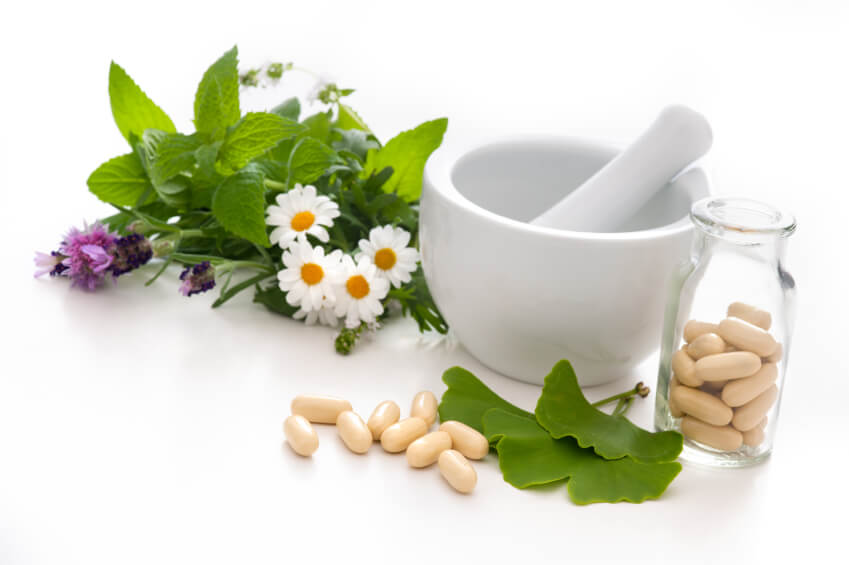Supplements can contain minerals, vitamins, or other natural biological substances, and are available in a variety of shapes and sizes as concentrates, extracts, capsules, tablets, liquids, and powders. Keep in mind that herbs and vitamins do not need to be tested for safety. Self-regulation by the manufacturer is not required, therefore the label itself is not proof of effectiveness.
Hence the general rule about supplements: They are considered safe until proven otherwise.
This is because supplements are not considered drugs and therefore do not fall under the same stringent safety requirements. The more the producer of a given supplement performs tests, analyzes and controls (which he is not obliged to do), the greater the chance that we are dealing with a responsible company whose products are effective. It is good if the supplement also contains basic information, such as intended use and dosage method, as well as storage, side effects, contraindications, and dangerous interactions.
Many countries believe that dietary supplements must not contain anything that could lead to “significant or unjustified risk of disease or injury”. Supplements are usually chosen by ourselves, but this is not the best way to make up for deficiencies. It is safer to do your research and consult your doctor or nutritionist. The decision of a professional will minimize the risk of disturbing symptoms or even overdosing. We should also remember that doctors are not obliged to inform about side effects reported by patients. If a supplement has unknown side effects or interactions with other medications, foods, or supplements, they likely won’t be discovered as quickly as those with new medications.

Dietary supplements that have been on the market for years are safe. After all, millions of people take multivitamins and other supplements daily without any ill effects. Many manufacturers are very careful and cautious about their label claims. Unfortunately, unknown companies are able to add ingredients not listed on the labels. For example, some supplements targeted at men as muscle enhancers contain substances that affect completely different problems in the body. The same happens with suspicious weight loss supplements for women.
To avoid dangerous supplements, do not buy any product that the manufacturer claims to work like a prescription drug – that is, it treats a given disease or ailment. It is also good to give up products that are described mainly in English, without a Polish translation.
What do dietary supplements really do?
Our body functions well when we meet its basic needs and when we maintain a balance between a balanced diet and exercise. Supplementation selected after appropriate medical or dietary consultation allows you to support this harmony.
Remember that processed foods do not provide us with all the necessary nutrients. Artificially grown tomatoes or cucumbers obtained in winter do not contain as many valuable vitamins and minerals as their counterparts grown during their natural growth time. Dietary supplements provide what we lack and in many cases constitute the basis of healthy everyday functioning. They should be used especially in elimination and low energy diets, as well as in the menu of athletes. Of course, the very action of supplements depends on their quality and whether we take them as prescribed by the doctor. Both dosage and proportions count. Too high doses can lead to serious illnesses and diseases, so be careful not to overdose them.

Safe supplements, i.e. what?
Primarily of natural origin. Many preparations contain mainly chemicals obtained in the laboratory. And yet the human body most often falls ill due to the lack of natural components, and not due to a shortage of compounds formed thanks to chemical syntheses. If we are already starting supplementation, remember that each of us may have a different tolerance, even to the most safe preparations. Hence, one should be cautious and vigilant, especially if we are prone to allergies or suffer from chronic diseases and take large amounts of medication. The body can struggle to absorb all medications and supplements.
The rule is to select supplements individually for each person, depending on the deficiencies confirmed by test results. The most commonly used preparations that contain minerals and vitamins that are usually too small in our body, including magnesium, vitamin C, vitamin D3, turmeric, spirulina and various probiotics.
Magnesium, essential for the proper functioning of the body, regulates the intestinal function, supports the nervous system and stabilizes the blood sugar level. Together with potassium, it helps to minimize muscle contractions. In turn, vitamin C is famous for immunizing the body and protecting against colds in the autumn and winter. It is a powerful antioxidant that destroys free radicals and protects against periodontal disease, and is involved in the synthesis of collagen (necessary to maintain good condition of the skin and joints).
The role of vitamin D3 is equally important, as it supports the condition of the osteoarticular and immune systems and protects us against autoimmune diseases. Turmeric, which supports liver function, and spirulina, which cleans the intestines of toxins, and probiotics beneficial to the intestines, are similarly important.





